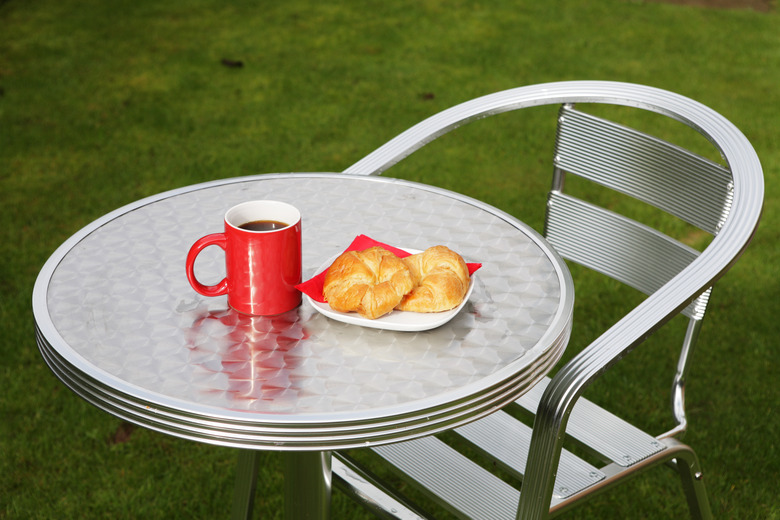How To Clean Aluminum Corrosion
We may receive a commission on purchases made from links.
Aluminum is light, versatile, strong, durable, and recyclable. In your home, it's in electronics, appliances, patio furniture, sporting goods, light fixtures, window frames, beverage packaging, and the kitchen foil that covers your leftovers. Basically, it's everywhere. Most of the aluminum consumer products you have in and around your home are anodized for protection, and to protect the anodized finish, they need to be cleaned carefully when aluminum corrosion occurs.
Corrosion Creation and Prevention
Corrosion Creation and Prevention
Aluminum doesn't rust, but it can be eaten away by corrosion and pitting after surface damage invites invading moisture and contaminating elements to settle in. Because corrosion spreads and eventually penetrates deeper, you need to remove it as soon as possible.
There are a couple of things you can do to help prevent the development of corrosion. First, do your best to make sure the aluminum object doesn't come into hard contact with other items that can scrape its surface, causing damage and triggering the disintegrating process.
Second, if at all possible, keep aluminum objects away from places where there's a lot of moisture, such as sometimes-steamy bathrooms or kitchens where cooking generates steam. If an aluminum item doesn't have to be kept outside in humid or even rainy weather, haul it indoors. It isn't always possible to control such exposure, but if you have a choice, opt for dry areas.
Ultimately, however, it's the electrochemical process resulting in an anodized finish that offers the best protection for today's aluminum products.
How to Clean Aluminum Corrosion
How to Clean Aluminum Corrosion
When cleaning anodized aluminum, it's normally best to start with the gentlest method and progress to harsher approaches when warranted. With corroded anodized aluminum, however, the hardness created by anodizing means you need to use a mild soap with an abrasive cloth or cleaning sponge.
Though it's generally best to avoid the use of alkaline and acidic cleaning solutions that can ruin the anodized finish on aluminum, mild corrosion can possibly be sent packing by gently rubbing the corroded area with a soft scrubbing pad wetted with a mixture involving vinegar or lemon juice. Just mix 1 quart of distilled water with 2 tablespoons of either white vinegar or pure lemon juice.
Because aluminum is a soft metal — and because you need to avoid damaging the anodized coating — be sure never to use super-abrasive cleaning products, wire brushes, or steel wool to deal with corrosion. If the problem is extensive, look for an aluminum-cleaning product on the market that states it can be used specifically for corroded anodized aluminum.
